Check me out. A new client told me he hates pop-up opt-in boxes on websites. As website tactics go, this one seems to be high on people’s hate list.
Know what I said? I said, “It doesn’t matter if you hate them. We’re going to do what works.”
Now if you know me, you know I’m not for everyone. I say what I think. I always tell clients, “You don’t have to agree with my opinion, but you do have to hear it.” Nothing wrong with that, right?
I mean isn’t it my expertise you’ve hired me for? If you call a plumber to come out and mire through the shit plumbers have to mire through, you’re not going to crawl under the sink with him and tell him how to fix the problem, are you?
I have one client who refers clients to me now and then with a warning, “Barry’s kind of opinionated.” I’m smiling. I don’t apologize for being opinionated. And I don’t attempt to hide the fact that when I’m giving you advice for making your online marketing more effective it’s because I know how. So, yeah, if you have thin skin, I’m not your guy.
[Pardon the interruption… Kristi Hines published a tremendous post on pop-up optin forms including examples, stats, case studies, tools, and way more, so if this subject interests you, see you soon. FYI, her posts are always intensely informative.]
Back to my story. I was a bit brash, I guess. So in the silence that ensued, I felt obliged to jump back in and explain. That went like this:
Barry: “Didn’t we just agree the objective we’re working toward is to build your email list as fast as possible?”
Client: “Yes.”
Barry: “Okay then, interrupting the reading process to ask the reader for the email is the proven way to actually capture their email. Is it really that important how you feel about opt-in forms?”
Clients: “Maybe not.”
Barry: “And tell me, if a few months from now you have a thousand new email addresses to put into your lead nurture stream, you’re probably not going to feel the same way about pop-up opt-in boxes. Yes?”
Client: “Yes.”
Heard of the HiPPO?
 The HiPPO is the “Highest Paid Person’s Opinion.” Avinash Kaushik popularized the acronym and went on to explain, “the HiPPO Syndrome” is toxic to sound decision-making.
The HiPPO is the “Highest Paid Person’s Opinion.” Avinash Kaushik popularized the acronym and went on to explain, “the HiPPO Syndrome” is toxic to sound decision-making.
If it’s a better outcome you want, you must have the good sense to accept you should not rely on intuition, judgment, or your emotional biases. Decisions need to be depersonalized. It’s not about you. It’s about your customers’ behaviors.
Kaushik proposes three more important and effective approaches to decision-making:
- Benchmarking
- Leveraging competitive analysis
- Testing
A/B Testing Book.
I recently attended the Conversion Conference in San Francisco and gathered a good many insights about making decisions based on what works, rather than on what feels right. While I was there, I picked up a copy of “A/B Testing: The Most Powerful Way to Turn Clicks into Customers,” a new book by Dan Siroker and Pete Koomen, co-founders of Optimizely. The book is far more interesting than you might suspect.
A chapter in the book explains the cure for the HiPPO syndrome and how to move toward an openness for experimentation. Essentially, you must be willing to take the numbers seriously, like it or not.
Dan Siroker explains it’s hard to convince the higher-ups to do something risky or radical. Going to the boss with, “I have an idea,” is often dangerous and ineffective. A better approach is:
I want to run an experiment that will help us make more money.
For obvious reasons, this approach tends to work.
The authors of A/B Testing explain, “A/B testing neutralizes the ideological and replaces it with the empirical.” And, “data-driven companies win because they make listening to and understanding their customers a basic component of the decision-making process.”
Hate failure.
So that’s my story today: a classic right-brainer giving way to left-brain thinking. As a copywriter, I’ll campaign endlessly for your communications to appeal to the customers’ emotions over their rationale. However, as a digital marketer, I’ll insist you remove emotional biases when it’s easy to rely on data to inform the important decisions that will enable you to achieve your objectives.
If you want to hate something, hate failure.
I hate going to the gym. But I do want to keep my waist size from expanding any more than it already has. So I go.
Sometimes. 😉


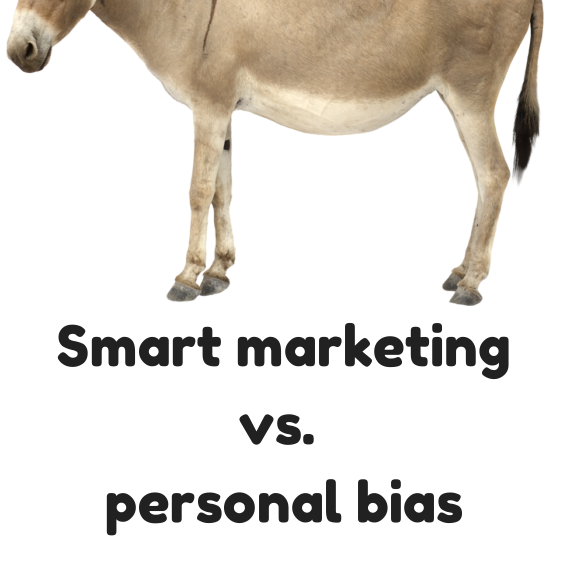
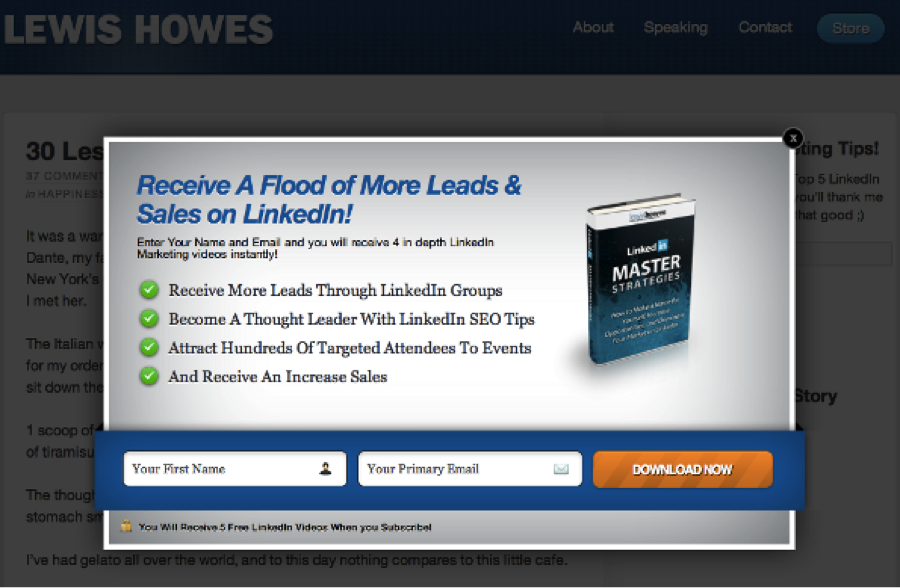
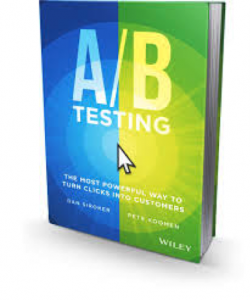

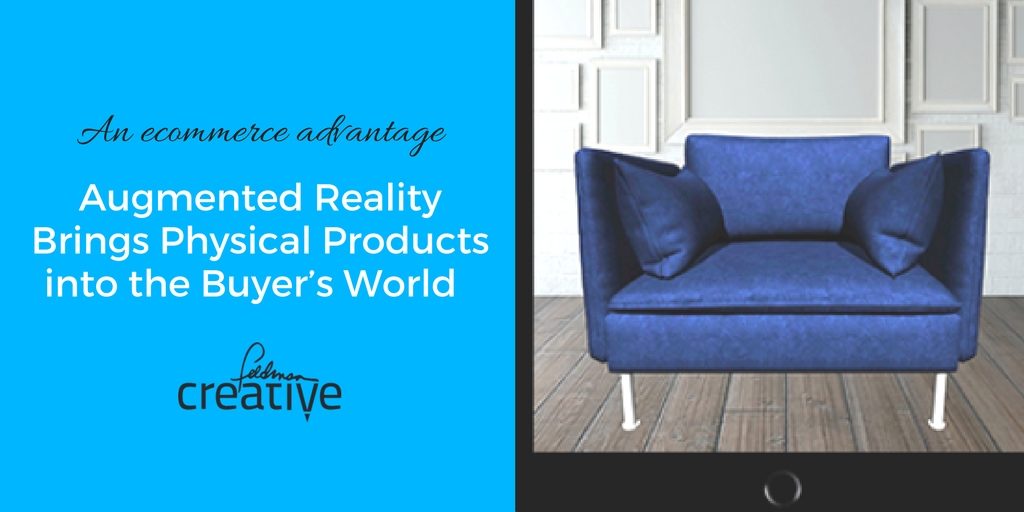
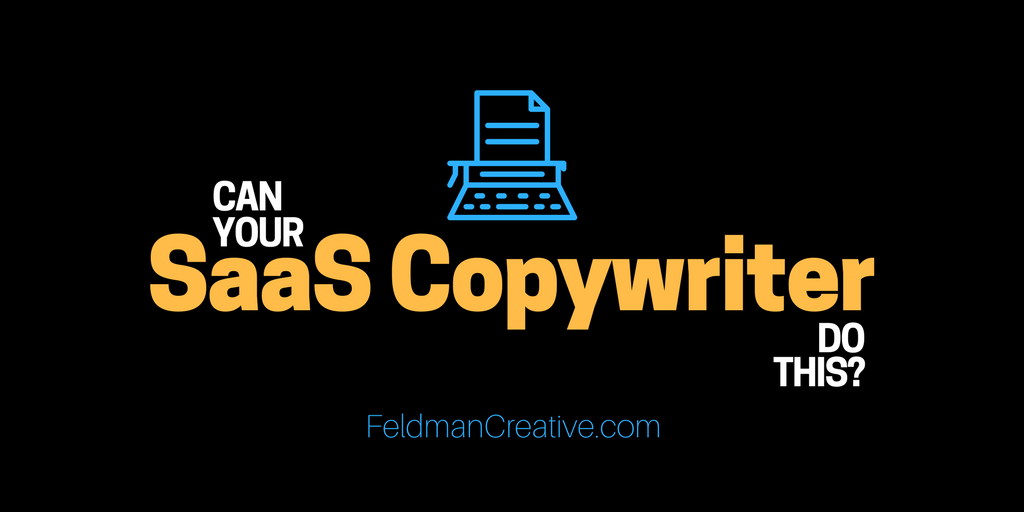

Comments
Douglas Karr
I always tell me clients, “This isn’t for you!” and remind them that it’s for their prospects and customers.
Barry Feldman
Right. Love that. But what you say is sometimes different than what they hear. You with me?
Douglas Karr
Sometimes? haha
KeysEMarketing
“I want more fans on Facebook!”
Ok, let’s talk about a fan-gate promotion or contest.
“Oh no…I don’t want people to have to like my page to enter a contest.”
Awesome.